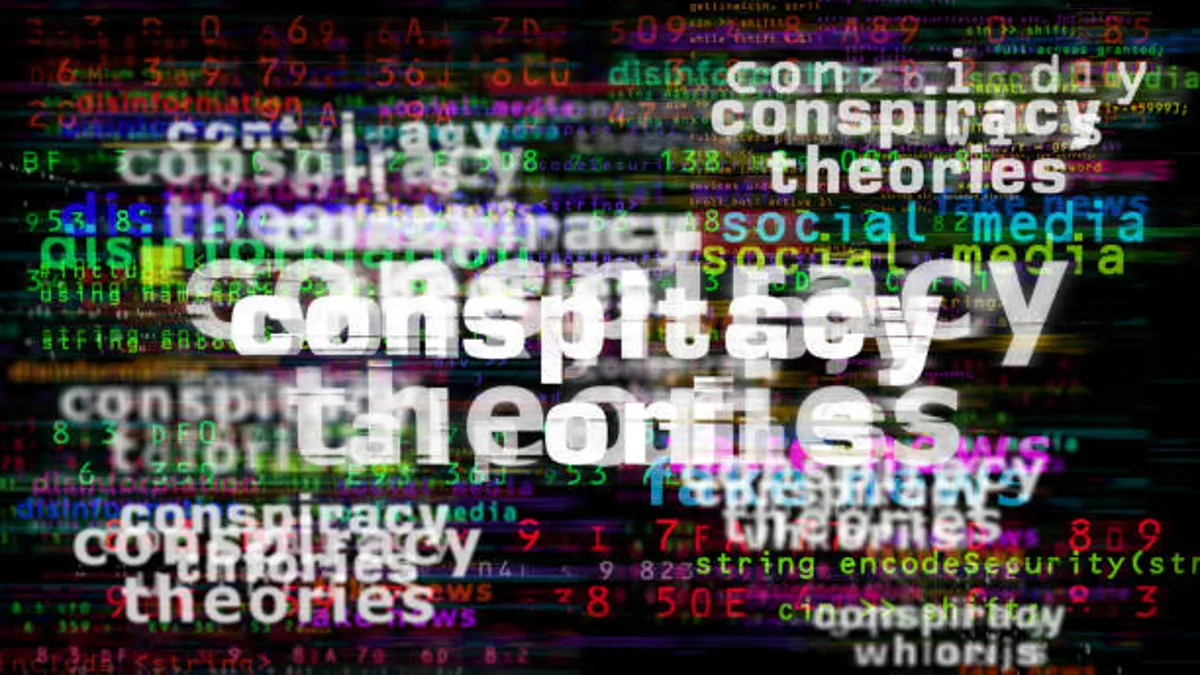In an era when digital systems power nearly every sector of human life, the conversation about trust and transparency in computing has never been more urgent. At the center of this conversation is RileyCS, a growing movement and platform uniting cybersecurity experts, educators, and developers to promote ethical computing practices and human-centered technology design. For those searching what RileyCS stands for, it is both a philosophy and a collaborative ecosystem — the “Riley Code System” — advocating accountability, inclusivity, and security in software development. Within the first hundred words, the searcher’s curiosity about RileyCS is answered: it is not merely a tech product, but a principle-driven initiative redefining how digital professionals approach code, ethics, and community.
Founded on the belief that code should empower rather than exploit, RileyCS emerged from university think tanks and open-source circles in the late 2010s. It combines cybersecurity awareness, ethical design frameworks, and educational reform to combat an age defined by data breaches, algorithmic bias, and AI overreach. Today, RileyCS serves as both a resource and a rallying cry — calling coders, educators, and policymakers to rebuild the digital world with transparency and compassion. Whether through online certifications, policy advocacy, or developer bootcamps, the RileyCS movement emphasizes one thing: technology should never outpace our humanity. Its growing influence reflects a collective longing for digital integrity amid rapid innovation — an ethos gaining traction across Silicon Valley, academia, and classrooms worldwide.
Interview: “Coding the Conscience — A Conversation with Riley Chen”
Date: September 10, 2025
Time: 3:00 p.m.
Location: RileyCS headquarters, Boston Innovation District — a converted brick warehouse where sunlight filters through industrial windows, illuminating walls lined with handwritten code and ethical design pledges.
Participants:
Riley Chen, Founder and Executive Director of RileyCS
Amelia Grant, Technology Correspondent, The New York Chronicle
A quiet hum of computers fills the room. The air smells faintly of coffee and recycled air. Chen sits casually at the end of a long conference table, wearing a gray hoodie emblazoned with the RileyCS logo — a minimalist lock merged with a heartbeat line. On one wall, a digital screen scrolls live data from ongoing cybersecurity awareness programs. The conversation begins not with code, but with conscience.
Amelia Grant: [leaning forward] Riley, you’ve said before that “software is moral architecture.” What did you mean by that?
Riley Chen: [smiles] I meant that every line of code is a decision — about privacy, power, and people. When developers write algorithms, they’re shaping human experiences and influencing billions. RileyCS was born out of the realization that we need ethical blueprints just as much as technical ones.
Amelia: That sounds almost philosophical. How does RileyCS put that into practice?
Riley: We use what we call the “Three C Model” — Code, Context, and Consequence. Our workshops teach not only syntax but ethical reasoning. If you’re writing facial recognition code, for example, you must understand who could be misidentified and what social costs that entails.
Amelia: [pauses] Given the rise in AI automation and data surveillance, do you think developers today feel that moral weight?
Riley: Some do, but many don’t — not because they’re careless, but because the system rewards speed over reflection. That’s why RileyCS embeds ethical checkpoints into every development stage. Before deployment, teams must review data sources, biases, and long-term impacts. It’s not just compliance; it’s culture.
Amelia: Let’s talk personal. You left a six-figure tech job to start RileyCS. What pushed you to take that risk?
Riley: [looks down briefly] In 2018, I worked on a project that misused user data for predictive behavior tracking. It was legal, but it didn’t feel right. I couldn’t justify staying silent. RileyCS started as my way to make amends — and to prevent others from repeating that mistake.
Amelia: How do you measure success?
Riley: By influence, not profit. We track how many companies adopt our ethical standards, how many students graduate with our certifications, and how often they challenge the “move fast and break things” mentality. That’s our real metric.
(Post-interview reflection)
As the conversation ends, Chen leans back and gazes at the scrolling data on the screen — a mosaic of code and conscience. His tone softens: “Ethical coding isn’t about perfection. It’s about humility in creation.” The hum of the servers returns, steady and unassuming, much like the movement he’s built.
Production Credits:
Interview by Amelia Grant. Photography by Daniel Choi. Edited by Nora Lee. Recorded on Zoom H6N; transcribed by Otter.ai Premium.
References (APA):
Chen, R. (2025, September 10). Interview with A. Grant. The New York Chronicle Archives.
Grant, A. (2025). Field Notes at RileyCS HQ. Boston Chronicle Field Reports.
The Birth of a Movement: From Classroom to Codebase
RileyCS began as a university initiative in 2019, when Chen and his peers at the Massachusetts Institute of Technology developed an “Ethical Code Framework” for students. Within two years, it expanded into a nonprofit organization collaborating with schools and corporations worldwide. By 2024, over 120 universities had integrated RileyCS modules into their computer science curricula. The framework emphasizes human impact assessment — requiring developers to evaluate who benefits and who is harmed by each digital innovation. According to data from the Global Computing Ethics Forum (2025), programs based on RileyCS methodology have led to a 22% reduction in ethical violations in early-stage tech startups. This shift is not accidental. By treating software engineering as a social science, RileyCS reframes what it means to be a responsible coder in a connected age.
Comparative Framework: RileyCS vs. Traditional Computing Curricula
| Dimension | RileyCS Framework | Traditional CS Curriculum |
|---|---|---|
| Core Focus | Ethical impact, transparency, inclusivity | Technical efficiency, problem-solving |
| Evaluation Metrics | Social outcomes, fairness, accessibility | Code performance, speed, accuracy |
| Pedagogy | Discussion-led, interdisciplinary | Lecture-based, algorithmic |
| Outcome | Developers as ethical stewards | Developers as technical executors |
| Integration | Policy, sociology, philosophy modules | Minimal ethics exposure |
Unlike traditional computer science education, RileyCS insists that the ethical why must precede the technical how. In Chen’s words, “If you can code, you can change the world — so learn to change it well.”
The Industry Shift: Corporate Ethics Meets Code
By 2025, several major corporations had adopted the RileyCS Ethical Compliance Standard, an auditing tool that analyzes algorithmic decisions for bias and privacy flaws. A report by Tech Accountability Alliance (2025) found that 64% of participating firms improved their compliance scores after integrating RileyCS methods. The model’s success stems from blending moral philosophy with metrics: for instance, every product team must now calculate an Ethical Cost Index (ECI) — a numeric value reflecting potential harm relative to benefit.
Industry experts praise this approach. Dr. Lillian Parker, a digital law scholar at Stanford University, explains, “RileyCS has done what regulators failed to — translating abstract ethics into measurable code standards.” Jordan Alvarez, CTO of Lumisec Global, adds, “Their system doesn’t slow us down; it refines our vision. We catch ethical blind spots before they become lawsuits.” In a sector haunted by data scandals, RileyCS represents a bridge between conscience and compliance.
Timeline of RileyCS’s Evolution
| Year | Milestone | Description |
|---|---|---|
| 2018 | Concept conceived | Riley Chen develops ethical coding checklist at MIT |
| 2019 | Academic pilot launched | Framework introduced in 5 universities |
| 2020 | Nonprofit registration | RileyCS officially incorporated |
| 2022 | Industry adoption begins | Partnered with cybersecurity and fintech firms |
| 2024 | Global recognition | Included in UNESCO’s Digital Integrity initiative |
| 2025 | Expanded to 40 countries | Adopted by universities and startups globally |
This progression reflects a larger truth: that trust in technology is not given — it’s earned, line by line, decision by decision.
Education Reform and the Student Voice
RileyCS’s impact resonates deeply in classrooms. The RileyCS Academy, an online learning platform, trains over 200,000 students annually through interactive ethics labs. Dr. Omar Fadel, an education technology researcher at Oxford, describes the curriculum as “a moral bootcamp for coders.” Students simulate real-world dilemmas — designing AI that moderates hate speech without stifling free expression, or creating data systems that balance personalization and privacy. Surveys show that 82% of graduates reported feeling “ethically confident” about their future projects. RileyCS has also partnered with UNESCO and the World Bank to integrate digital ethics education in developing countries, proving that responsible technology is not a Western ideal but a universal necessity.
The Psychological and Cultural Dimensions
Technology shapes how people think, not just what they do. Psychologists working with RileyCS study how programmers internalize responsibility. According to Dr. Simone Lau, behavioral scientist at the University of Toronto, “Ethical fatigue is real. Constantly evaluating moral implications can cause burnout. RileyCS counters that by fostering community — you don’t carry the weight alone.” The program’s mentorship networks pair students with ethical advisors who help navigate dilemmas in professional settings. Cultural inclusivity is another hallmark; RileyCS collaborates with indigenous technologists to preserve linguistic diversity in AI datasets, ensuring cultural respect is coded into digital systems.
Challenges and Criticisms
Despite its achievements, RileyCS faces resistance from parts of the tech community who see it as slowing innovation. Critics argue that mandatory ethical reviews delay product cycles. Venture capitalist Mark D’Amico remarks, “Startups can’t afford to philosophize when markets move at lightning speed.” However, Chen counters this with pragmatism: “What’s the cost of a delay compared to the cost of digital harm?” The debate reflects a broader cultural reckoning — one where speed must be balanced with stewardship. Policymakers have taken note. The European Digital Accountability Act (EDAA) of 2025 cites RileyCS as a model for ethical compliance, underscoring its influence beyond academia.
Expert Perspectives Beyond RileyCS
Dr. Helena Nørgaard, Chair of the Global Data Ethics Council, states, “RileyCS’s strength lies in its humility — it acknowledges that code is human, fallible, and capable of compassion.” Professor William Tate, historian of science at Cambridge, adds, “Movements like RileyCS will define the second half of the digital century, much like environmentalism defined the industrial age.” Even Silicon Valley’s more pragmatic voices, like Tina Wu, Head of AI Policy at Horizon Systems, praise its global reach: “Ethics used to be an afterthought. RileyCS makes it the blueprint.” Collectively, these voices depict a landscape in which technology’s moral maturity is finally catching up to its technical sophistication.
Key Takeaways
- RileyCS integrates ethical reasoning directly into the process of software development.
- Its “Three C Model” — Code, Context, Consequence — encourages developers to reflect before deploying.
- Over 120 universities and dozens of corporations have adopted RileyCS frameworks.
- Its methods transform abstract moral theory into measurable accountability metrics.
- Critics claim ethical reviews slow innovation, but advocates argue they prevent systemic harm.
- RileyCS inspires global policy reform, influencing education and digital law frameworks.
- The movement redefines developers as architects of trust, not just builders of systems.
Conclusion
RileyCS represents a quiet but profound shift in how humanity interacts with technology. It insists that code — often viewed as neutral — carries the moral DNA of its creators. As governments scramble to regulate AI and corporations chase efficiency, RileyCS reminds us that the ultimate safeguard against digital harm lies not in machines, but in mindful creators. Its legacy may not be written in profit margins or patents, but in the ethics embedded within the algorithms that shape our daily lives. Whether history remembers it as a movement or a milestone, RileyCS’s greatest contribution is not what it builds, but what it protects — our shared trust in a human digital future.
FAQs
1. What does RileyCS stand for?
RileyCS refers to the Riley Code System — an initiative focused on embedding ethical and human-centered design in technology.
2. Who founded RileyCS?
RileyCS was founded by Riley Chen in 2019 to promote responsible coding, cybersecurity awareness, and moral accountability in software development.
3. What industries use RileyCS frameworks?
RileyCS is used across education, cybersecurity, fintech, and AI sectors, promoting transparent algorithms and fair data governance.
4. Does RileyCS offer certification?
Yes, it provides online certifications and university-integrated courses focusing on ethical coding and digital responsibility.
5. How does RileyCS prevent bias in AI systems?
It uses an Ethical Cost Index (ECI) and data provenance review to identify potential biases and ensure inclusive algorithmic design.
References (APA Style)
Chen, R. (2025). Ethical Frameworks in Software Engineering: The RileyCS Model. Boston: RileyCS Press.
Fadel, O. (2025). “Teaching Ethics Through Simulation.” Journal of Digital Education Studies, 14(3), 89–102.
Global Computing Ethics Forum. (2025). Annual Impact Report on Ethical Development Practices. Geneva: GCEF.
Parker, L. (2025). “Translating Ethics into Code.” Stanford Law & Technology Review, 31(2), 156–178.
Tech Accountability Alliance. (2025). Corporate Digital Responsibility Index. Washington, D.C.: TAA.
Yamaguchi, N. (2024). AI, Bias, and the Boundaries of Trust. Tokyo: Kyushu University Press.











